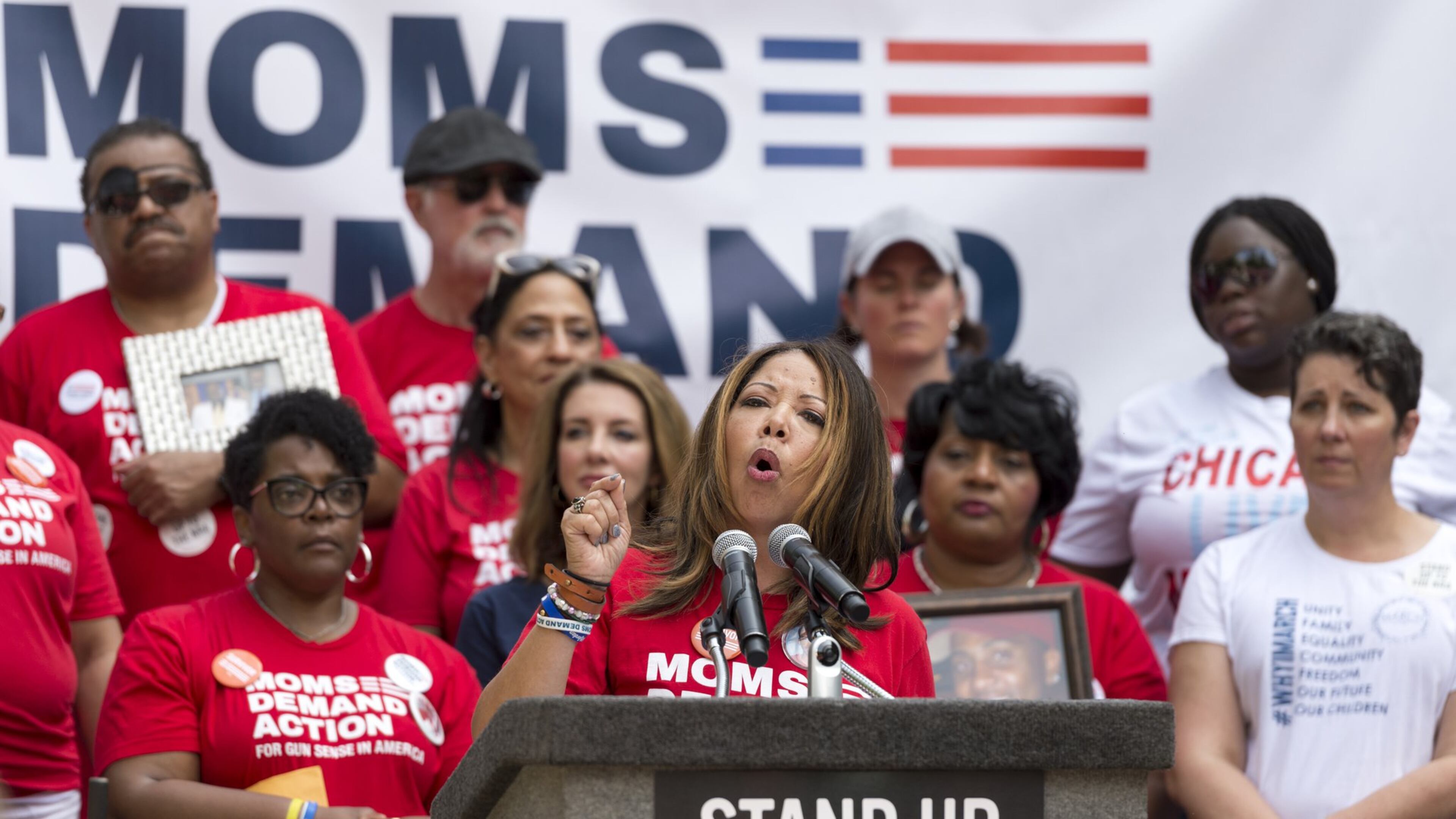Lucy McBath says coronavirus pandemic creates new urgency around gun control measures

WASHINGTON — U.S. Rep. Lucy McBath has grown tired of the all-talk, no-action approach she perceives on Capitol Hill when it comes to limiting access to guns.
But that could change as early as Wednesday. The House is expected to vote on a bill that would require background checks for virtually all firearm sales. McBath is one of the eight original co-sponsors of the measure, H.R. 8, but nearly every Democrat and three Republicans have since signed on.
The Marietta Democrat ran for Congress in 2018 partially to advocate for tighter gun laws after high-profile school shootings and her own son’s murder. She said recently that the coronavirus pandemic has heightened the need as cities across the U.S. report increases in gun crimes, suicides and domestic violence.
“It’s not going to be easy, but I truly believe that now is the time,” McBath said Monday. “And the country is really, really ripe. I cannot tell you how many people every week I’m talking to that are anxiously waiting for us to pass legislation. They are tired; they are afraid.”
Polling in Georgia and nationally shows that universal background checks are among the most popular gun control proposals. However, many House Republicans say they won’t support it. Those GOP members are also critical of a second measure up for a vote Wednesday that would close the so-called “Charleston loophole” for firearm sales.
The man who killed nine people during a church service in the South Carolina city had been allowed to purchase a gun without a background check because a three-day waiting period expired. The bill would extend the time allowed for background checks to a minimum of 10 days, which Democrats say is needed because the number of gun sales has rocketed in recent years and can overwhelm the FBI at times.
Republicans say these measures were rushed through the process, will not prevent gun violence and erode the constitutional rights of gun owners.
“Each of these bills is an affront to law-abiding Americans who lawfully possess firearms for sports or for self-defense,” U.S. Rep. Jim Jordan of Ohio said during a Monday hearing. “When taken together, these bills are an assault on the Second Amendment to the Constitution.”
Georgia U.S. Rep. Marjorie Taylor Greene was among a group of conservative House members who derailed Monday’s schedule in part because they wanted to send a message about the gun legislation. By refusing to allow a separate bundle of noncontroversial bipartisan bills to be approved in one vote, Greene and the House Freedom Caucus said they were helping to slow down a Democratic agenda they consider radical.
Democrats say they will forge ahead with votes on both bills, which could happen as early as Wednesday. But it is less clear what will happen when the legislation moves over to the U.S. Senate.
The House passed similar proposals two years ago when the Senate was under the leadership of Republican Mitch McConnell; they never got a hearing there. Democrats control the chamber now, but policy measures still cannot pass without 60 votes, meaning at least 10 Republicans are needed.
McBath said she plans to work the process and make the case to Senate Republicans why these measures need to become law.
“We’re going to pass this bill in the House, and immediately I’m going to start calling the Senate and I’m going to start imploring to them,” she said. “They need to stand tall on this because people in your district are affected by gun violence as well, not just Democrats.”
The Biden administration this week lent its support to both proposals, H.R. 8, the background check measure, and H.R. 1446 to close the loophole. Its statement also said the White House hoped to “take other commonsense steps to reduce gun violence.”
McBath has ideas about what that could entail. She wants to see Congress pass a “red flag” law that allows police or the courts to temporarily remove guns from the possession of people who are determined to be potential threats.
She is also in favor of limiting the use of “stand your ground,” a controversial self-defense law that exists in many states and allows people to avoid being prosecuted after using deadly force if they say they felt their safety or someone around them was in danger.
Her son Jordan’s killer initially claimed he was standing his ground when he shot the teenager, who was sitting in a car at a Jacksonville, Florida, gas station. A jury later convicted the man of first-degree murder after two trials. Other Florida “stand your ground” trials resulted in acquittals, most notably the one for George Zimmerman, who followed and confronted 17-year-old Trayvon Martin in 2012.
Calls for Georgia to repeal its “stand your ground” law increased after the death of Ahmaud Arbery last year near Brunswick. Three men followed, then confronted Arbery before he was shot, but prosecutors initially declined to press charges after the men said they believed he had committed a burglary.



